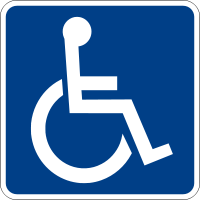|
Listen to this Article
|
In the matter of Weaving v. City of Hillsboro, a jury determined that the City of Hillsboro violated that Americans with Disabilities Act (ADA) when it terminated police officer Matthew Weaving, who suffered from attention deficit hyperactivity disorder (ADHD). The city then appealed the district court’s earlier denial of its motion for summary judgment to the Ninth Circuit, which the panel then used to overturn the verdict. Specifically, the majority held that the jury could not have, as a matter of law, concluded that the officer’s ADHD substantially limited his ability to perform his job or work with others such that the ADA applied.

Examples of such “major life activities,” the court noted, include “caring for oneself, performing manual tasks, seeing, hearing, eating, sleeping, walking, standing, lifting, bending, speaking, breathing, learning, reading, concentrating, thinking, communicating, and working.” 42 U.S.C. 12102(2)(A). As the panel understood, the list of “major life activities” covered by the ADA is a “nonexhaustive” one.
The panel further acknowledged that, per EEOC regulations following the 2008 amendments to the ADA, an impairment such as ADHD “need not prevent, or significantly or severely restrict, the individual from performing a major life activity in order to be considered substantially limiting.” 29 C.F.R. § 1630.2(j)(1)(ii) (emphasis added). As such, the court recognized that it “requires an individualized assessment” to determine whether an employee’s condition is substantially limited within the meaning of the ADA.
Despite its clear recognition of its subjective nature, the Ninth Circuit panel nevertheless concluded that the jury’s assessment was mistaken, ruling instead that Weaving’s claims were insufficient as a matter of law to support a finding that Weaving had a disability, much less that he was terminated because of said disability. Specifically, the panel held that the evidence at trial was insufficient to demonstrate that Weaving “was limited in his ability to work compared to ‘most people in the general population.'” (citing Id.). To support its assessment, the panel pointed to, among other things, the fact that Weaving was “a skilled police officer” who had been commended for his”knowledge and technical competence” and even selected for “high-level assignments” during his time on the force.
The panel further suggested that Weaving’s promotion to sergeant before he began receiving ADHD treatment and the fact that he was deemed fit for duty after treatment began serve to support the conclusion that his ability to work was not substantially limited by his condition. With respect to Weaving’s claims that his ADHD also limited his ability to interact with others (which provided the very basis for his termination), the panel held that such a limitation was not sufficiently debilitating in Weaving’s case. The panel reached its conclusion by looking to the matters of McAlindin v. County of San Diego, 192 F.3d 1226 (9th Cir. 1999) and Head v. Glacier Northwest, Inc., 413 F.3d 1053 (9th Cir. 2005), wherein the plaintiffs “were essentially housebound” in the court’s own assessment.
Such an assessment seems at odds with the panel’s own understanding of the meaning of “substantially limiting” under the ADA, not to mention its acknowledgment that “Weaving had developed compensatory mechanisms that helped him overcome ADHD’s impediments and succeed in his career.” Despite the aforementioned regulations specifying that Weaving’s ADHD need not have a prohibitive or restrictive effect on his ability to work or communicate with others in order to be considered “substantially limiting,” the Ninth Circuit concluded that Weaving’s ability to perform his job well and “engage in normal social interactions” conclusively demonstrated his lack of a disability under the ADA.
As the dissent pointed out, the majority was supposed to “draw all reasonable inferences in favor of the nonmoving party and ‘disregard all evidence favorable to the moving party that the jury is not required to believe.'” Escriba v. Foster Poultry Farms, Inc., 743 F.3d 1236, 1242-43 (9th Cir. 2014). After hearing the evidence – including the fact that Weaving’s doctor saw him as “one of the clearest examples of adult ADHD” that he had ever seen and that Weaving’s condition rendered him “unable to self-regulate” some of the very same behaviors that led to his termination – a duly instructed jury not only concluded that Weaving had a disability under the ADA, but that the city failed to accommodate and terminated him because of that disability.
Though completely permissible to consider during its deliberations, the majority determined that such evidence was insufficient to support the jury’s conclusion that Weaving’s ADHD was a disability. In the majority’s assessment, Weaving was little more than a “‘cantankerous person’ who has ‘[m]ere trouble getting along with coworkers,” and that as such, he was not disabled under the ADA. (citing McAlindin, supra, 192 F.2d at 1325).
The majority rationalized its reversal on the basis that upholding the jury’s verdict “would be to expose to potential ADA liability employers who take adverse employment actions against ill-tempered employees who create a hostile workplace environment for their colleagues.” However, as underscored in the dissent, it remains a concern whenever a panel of judges “decides that it knows better” than the jury in analyzing the evidence presented and needlessly inserts itself into the role of fact-finder. In so doing, courts not only shirk their primary role as adjudicators, but they run the risk of forcing juries (and the foundational right they embody) into eventual irrelevance.




